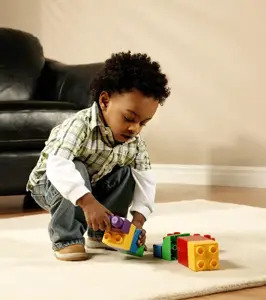Though your special needs child may have been diagnosed in early childhood, it’s possible that after some treatment and therapy, their initial diagnosis may change over time. Check out the following tips for monitoring your child’s progress, and ensuring that they get an accurate medical assessment.
Parents of children with developmental disabilities know just how difficult, and at times overwhelming, it can be to secure an accurate diagnosis for your child. As a parent, you want to be confident that your child is getting the right educational and therapeutic services for his or her specific needs. Diagnosing a young child can be especially tricky since many diagnoses have overlapping characteristics. It is not unusual for diagnoses, especially those of autism and attention deficit disorder (ADD), to change over time as children develop, mature, and respond to intervention.
Here are some suggestions for parents trying to secure an accurate assessment:
Focus on your child.
Your child’s educational and therapeutic plan should be based upon your child, not your child’s diagnosis. A diagnosis may assist in understanding your child and his or her needs; however, specific treatment should be based upon your child’s strengths, weaknesses, and developmental needs.
This is not a short process.
Keep in mind that any diagnosis must be based upon a thorough evaluation. A short five-minute office visit and only a brief parent interview are not sufficient and may result in a misdiagnosis.
Get a second opinion.
If you are not confident in the diagnosis or if you have seen significant changes over time, then you should see a new doctor for another opinion.
Stay informed.
Ask questions and research your child’s diagnosis independently. Parents whose child has been diagnosed with a developmental disability may be wondering where to go from there. The bottom line is: Your child’s progress should be constantly monitored. You should pay specific attention to the areas of language and communication, interpersonal skills, affective and emotional growth, fine/gross motor development, and academic skills and achievement. You should also be attuned to your child’s “adaptability.” Pay attention to how your child responds to different environments, novel situations, and change in general. In time, you may see your child’s abilities improve.
Parents and caretakers should also keep an eye out for areas of a child’s development that are extreme or atypical. For example, is your child very sensitive to sound, not sufficiently responsive to sounds, or atypically responsive? Any significant changes in a child’s behavior or developmental progress should be attended to and discussed with the child’s school, therapists, and/or physician.
For example, I worked with a boy named John,* who was diagnosed with autism when he was 2 years old. After two years in school, his family came to visit me to discuss their child’s diagnosis. After observing John in my office, performing an extensive interview with his parents, observing him in a classroom setting, and getting a report from his teacher, it was clear that John did not satisfy the diagnostic criteria for autism or any autistic spectrum disorder (e.g., Asperger’s Syndrome, PDDNOS). It’s difficult to discern if John was misdiagnosed when he was 2 years old or if maturation and responsiveness to intervention resulted in the change.
My experience with John and his family demonstrates that parents must constantly challenge all members of the team to collaborate and modify treatment to address the dynamic needs of their child. By being your child’s biggest advocate and keeping up with your child’s development through monitoring, you’ll put yourself in a good position to determine whether your child’s diagnosis has changed and to gauge whether treatment and intervention are helping him or her.
*Name changed
Jay M. Silverstein, Ph.D., serves as director of children’s services at Block Institute, a not-for-profit, non-sectarian agency serving developmentally delayed children and adults in Brooklyn.






















